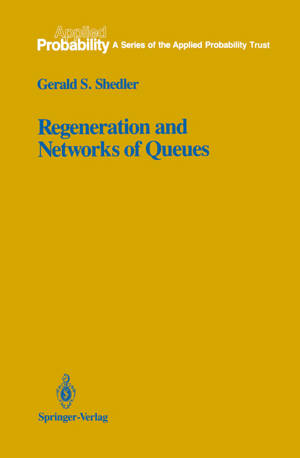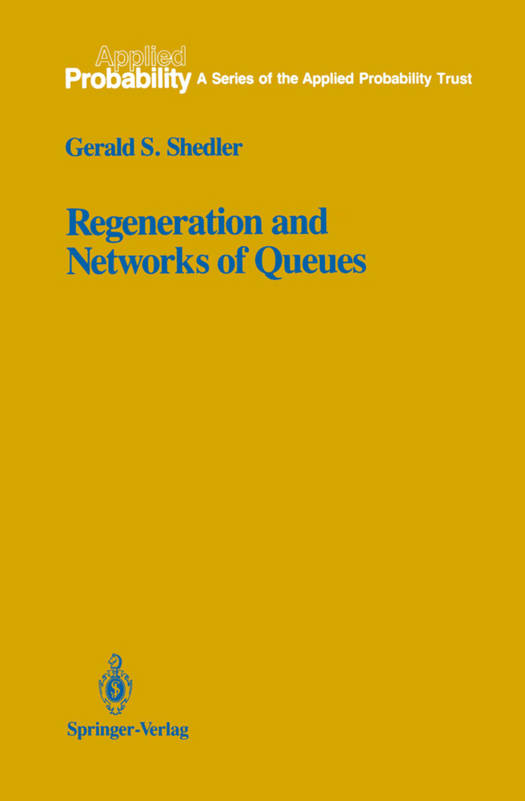
Door een staking bij bpost kan je online bestelling op dit moment iets langer onderweg zijn dan voorzien. Dringend iets nodig? Onze winkels ontvangen jou met open armen!
- Afhalen na 1 uur in een winkel met voorraad
- Gratis thuislevering in België vanaf € 30
- Ruim aanbod met 7 miljoen producten
Door een staking bij bpost kan je online bestelling op dit moment iets langer onderweg zijn dan voorzien. Dringend iets nodig? Onze winkels ontvangen jou met open armen!
- Afhalen na 1 uur in een winkel met voorraad
- Gratis thuislevering in België vanaf € 30
- Ruim aanbod met 7 miljoen producten
Zoeken
Omschrijving
Networks of queues arise frequently as models for a wide variety of congestion phenomena. Discrete event simulation is often the only available means for studying the behavior of complex networks and many such simulations are non- Markovian in the sense that the underlying stochastic process cannot be repre- sented as a continuous time Markov chain with countable state space. Based on representation of the underlying stochastic process of the simulation as a gen- eralized semi-Markov process, this book develops probabilistic and statistical methods for discrete event simulation of networks of queues. The emphasis is on the use of underlying regenerative stochastic process structure for the design of simulation experiments and the analysis of simulation output. The most obvious methodological advantage of simulation is that in principle it is applicable to stochastic systems of arbitrary complexity. In practice, however, it is often a decidedly nontrivial matter to obtain from a simulation information that is both useful and accurate, and to obtain it in an efficient manner. These difficulties arise primarily from the inherent variability in a stochastic system, and it is necessary to seek theoretically sound and computationally efficient methods for carrying out the simulation. Apart from implementation consider- ations, important concerns for simulation relate to efficient methods for generating sample paths of the underlying stochastic process. the design of simulation ex- periments, and the analysis of simulation output.
Specificaties
Betrokkenen
- Auteur(s):
- Uitgeverij:
Inhoud
- Aantal bladzijden:
- 224
- Taal:
- Engels
- Reeks:
- Reeksnummer:
- nr. 3
Eigenschappen
- Productcode (EAN):
- 9780387964256
- Verschijningsdatum:
- 1/12/1986
- Uitvoering:
- Hardcover
- Formaat:
- Genaaid
- Afmetingen:
- 156 mm x 234 mm
- Gewicht:
- 508 g

Alleen bij Standaard Boekhandel
+ 343 punten op je klantenkaart van Standaard Boekhandel
Beoordelingen
We publiceren alleen reviews die voldoen aan de voorwaarden voor reviews. Bekijk onze voorwaarden voor reviews.











